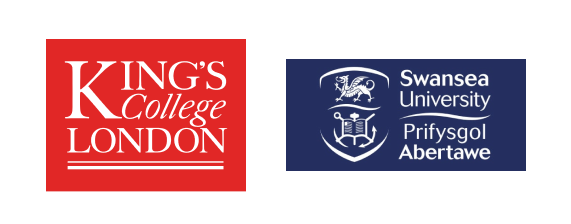Cloud computing allows for analyzing molecules at scale
Computational chemistry accelerated at scale, with datasets from 400K to 30M molecules
In lab test, biobased microcapsules healed a pavement crack in fifty minutes
Training and support on VertexAI and Compute Engine tools
Extra credits, resources, and network through Google Cloud Research Innovator program
Chemist in Google Cloud Research Innovator program uses cloud computing and machine learning to design nature-inspired materials like self-healing asphalt.
Chemist in Google Cloud Research Innovator program uses cloud computing and machine learning to design nature-inspired materials like self-healing asphalt.
Environmental design that’s inspired by nature and built with the latest technologies
The field of materials science relies on computational chemistry to analyze the properties of the molecules we use to design the built environment all around us—from the pavement under our feet to the steel beams over our heads, or the way we collect and store energy. Predicting chemical reactivity can help us understand how materials will interact with each other, age over time, and safely degrade into the environment over the course of a product’s life cycle.
Making computational chemistry more efficient can help decrease its environmental impact, reduce cost, and democratise access to computational simulations in reduced-constrained devices or at research centers where supercomputing is limited, and computational work is done in desktop machines.
In his lab, Dr Francisco Martin-Martinez, an expert in Computational Chemistry at King’s College London, started working on understanding nature’s ability to design materials for degradation as well as performance. In collaboration with Dr Jose Norambuena-Contreras, an expert in self-healing asphalt at Swansea University, as well as colleagues from Chile, he and his team have collaborated to design a self-healing asphalt that can mend its own cracks over time, without requiring human maintenance.
By using Google Cloud to understand asphalt blends through computational models, they developed extremely resistant biobased spores to use as a more resilient material for pavements. In a lab test, these biobased spore microcapsules completely healed a crack in an aged bitumen sample in fifty minutes. While still under development, this innovation has enormous potential to improve infrastructure and advance sustainability around the world.
In the past, producing these computational models was slow and expensive. But the advent of cloud computing and machine learning is revolutionising the field. Inspired by nature, Martin-Martinez describes his goal as “developing new computational chemistry tools that speed up property predictions and molecular discovery with special focus on nature-informed chemical reactivity and molecular degradability.” These cloud-based tools can discover chemical properties and eventually create virtual molecules to serve a specific purpose, as with drug discovery.
Google Cloud provides cutting-edge computational hardware and software, a very dynamic user interface, and an incredible team of experts and engineers that we can work with.
Francisco Martin-Martinez
Senior Lecturer at King’s College London and Honorary Senior Lecturer at Swansea University
Chemical computations at scale and at speed
Martin-Martinez’s team worked with University of Granada colleague Isaac Vidal-Daza to deploy large data sets to train variational auto-enconders (VAE), recurrent neural networks (RNN) or generative adversarial networks (GANs) on Google Cloud. Then, using machine learning, they can predict the chemical properties of molecules and complex materials and simulate their behavior from the nanoscale to the mesoscale. They have developed new metrics to quantify the reactivity of individual atoms within the reactivity of collective molecules, and calculated them in different molecular data sets from 130,000 to 30 million molecules. With an average of 18 atoms and 60 interacting electrons per molecule, predicting the reactivity of these 130,000 molecules entailed solving 3.7*10¹⁰ integrals, which thanks to the use of Google Cloud, was done in just a few days.
Martin-Martinez explains that “the data generated using Google Cloud, and the posterior analysis and processing performed on Google Cloud are essential for the success of the project. The availability of Tensor Processing Units (TPUs), ready-to-use Pytorch containers, and AutoML tools are very useful for our research.”
In 2022 Martin-Martinez joined the Google Cloud Research Innovators program, which offers a global community of researchers access to Google experts, technical resources, additional Google Cloud credits, speaking opportunities, training, and support from mentors. He was already committed to working collaboratively on projects with real-world impact and chose Google Cloud tools because “Google Cloud provides cutting-edge computational hardware and software, a very dynamic user interface, and an incredible team of experts and engineers that we can work with.”
A passion for sustainable design, for everyone, everywhere
For Martin-Martinez, resilient infrastructure is essential to sustainable development globally. His lab has already begun new projects with Google Cloud to discover molecules for better energy harvesting and develop soil remediation materials for urban farming. Another project funded by the National Science Foundation (NSF) at the Massachusetts Institute of Technology (MIT) and with Cornell University explores the social and environmental implications of developing materials, like the impact of supply-chain pipelines, raw materials sources, or unintended consequences in local communities. These projects support his belief that “sustainable development is possible on a planet with limited resources and increasing global population, without compromising the ability of future generations to meet their needs.”
Founded in 1829, King’s College London is a top 40 University in the world according to QS Ranking.
Founded in 1920, Swansea University is the top university in Wales, according to the Guardian University Guide.
Industry: Technology
Location: UK
Products: Cloud GPUs, Cloud TPUs, Compute Engine












